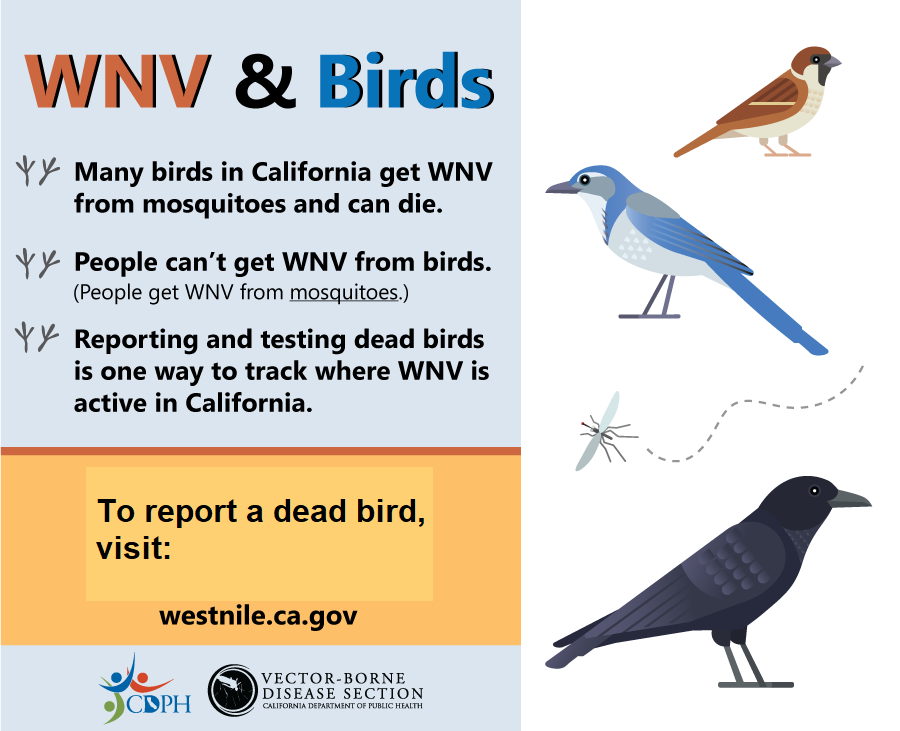West Nile Virus: Reporting a dead bird to the California Department of Public Health (CDPH)
The CDPH West Nile Virus Dead Bird call center is now closed for the the rest of 2024 and will re-open in the Spring of 2025. To report a dead bird, visit the CDPH Dead Bird reporting web page at westnile.ca.gov/report and fill out an online dead bird reporting form. After filing an online report you will also receive an automatic email response containing:
- Bird carcass disposal advice*;
- Information on how to contact your local mosquito and vector control district or instructions for further action if it is determined the bird is in good enough condition for encephalitis virus testing (including West Nile virus);
- Information on whether your local mosquito and vector agency is testing dead birds for viruses during the off-season.
The Mosquito & Vector Management District of Santa Barbara County accepts dead birds for testing year-round.
* Please be careful when handling a dead bird. Avoid contact with any fluids and always wear a mask (N95 or KN95 is best), disposable gloves, eye protection (safety glasses or face shield) and wear long sleeves and pants.


For detailed information and FAQs on West Nile Virus plus links to other resources, go to the CDPH WNV website at westnile.ca.gov
West Nile Virus and Horses:
WNV can be very serious, even deadly, for horses. Visit this California Dept. of Food & Agriculture website for more information: Equine West Nile Virus
